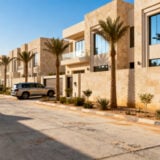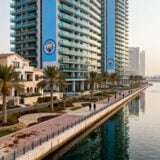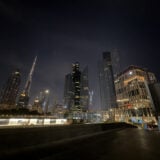Residential property prices in Dubai are likely to jump 35% this year, according to the median of forecasts from the 10 organisations.
Price growth will probably slow to 8.5% next year, when five of the nine analysts expect prices to hit a peak after double-digit increases in each year since Dubai opened its property market to foreign investment in 2002.
'After four years of tremendous price growth the market needs a breather,' said Robert McKinnon, managing director of equity research at Al Mal Capital. 'Dubai has taken some measures to tackle speculation which will have some impact on the market,' he added.
Six of the analysts say prices could fall at least 15% from peak to trough, including one expecting a drop of more than 30%. Two foresee no correction in prices at all and two anticipate declines of 10%.
Overall the group forecast a 32.5% chance of a correction in Dubai. Half said the chance of a correction exceeded 50%.
'When the correction happens, a lot of existing potential buyers will start entering the market on more attractive prices and thus balancing the market going forward,' said Ahmed Badr, an equity research analyst at Credit Suisse in Dubai.
Speculators in search of quick gains have been a main driving force behind the 79% surge in Dubai housing prices since the start of 2007, according to investment bank Morgan Stanley.
Expatriates from countries facing political instability, such as Pakistan, Lebanon and Iran, for instance, have long been lured to Dubai by its safe-haven status. 'There is enough demand to take the place of speculation, but the demand is at a different price level,' McKinnon said.
Even as speculators exit the market, analysts said a sharp fall in prices was unlikely since the state exerts extensive control over supply. Most said residential prices in Dubai were slightly overvalued.
'At the worst we could see a soft landing, but a sharp correction in the Dubai market is far-fetched,' said Bikash Rout, senior financial analyst at Global Investment House. Dubai needs about 30,000 to 35,000 new units each year to meet demand as the population grows 7 percent per year, he added.





